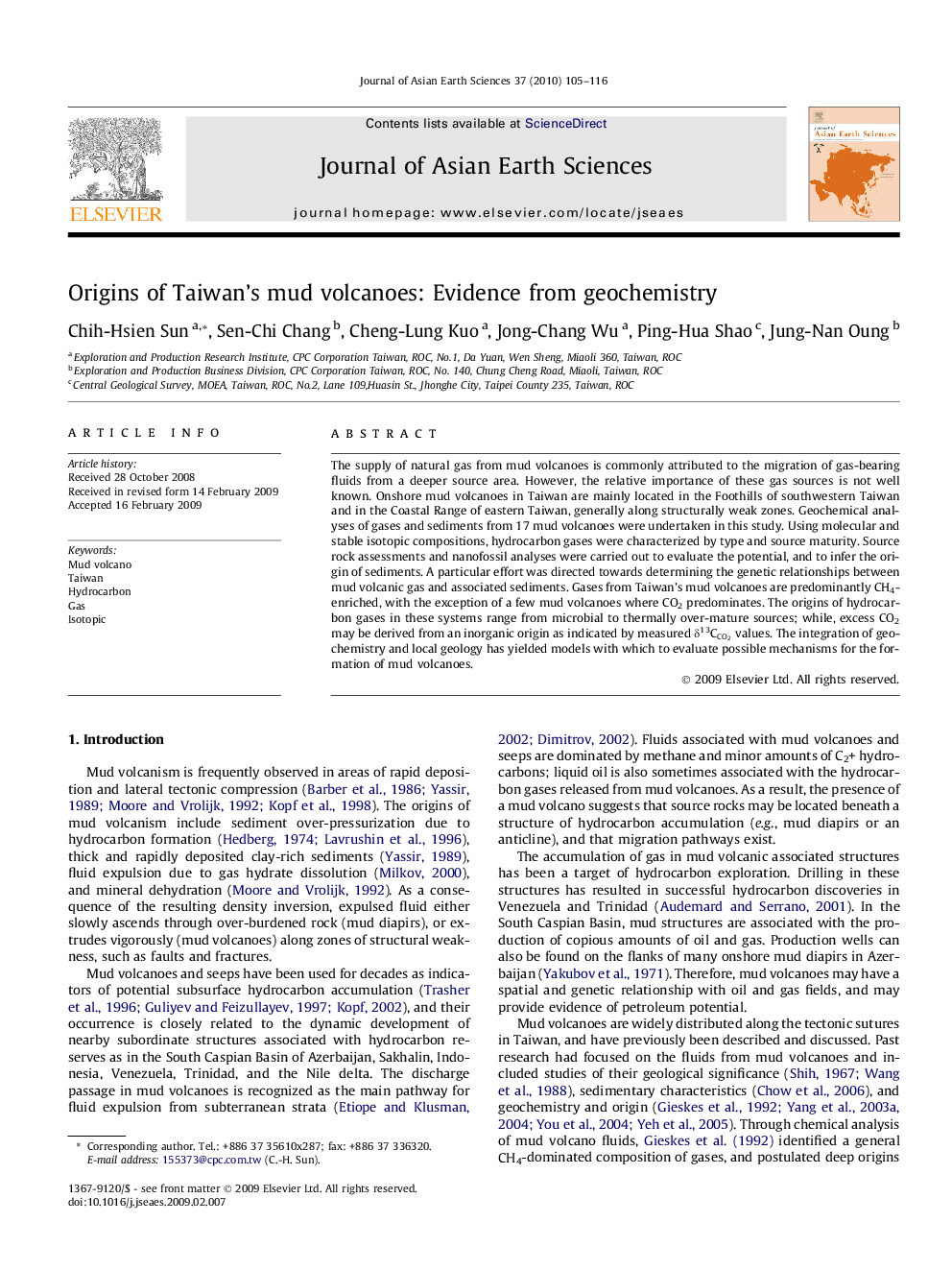| Article ID | Journal | Published Year | Pages | File Type |
|---|---|---|---|---|
| 4732402 | Journal of Asian Earth Sciences | 2010 | 12 Pages |
The supply of natural gas from mud volcanoes is commonly attributed to the migration of gas-bearing fluids from a deeper source area. However, the relative importance of these gas sources is not well known. Onshore mud volcanoes in Taiwan are mainly located in the Foothills of southwestern Taiwan and in the Coastal Range of eastern Taiwan, generally along structurally weak zones. Geochemical analyses of gases and sediments from 17 mud volcanoes were undertaken in this study. Using molecular and stable isotopic compositions, hydrocarbon gases were characterized by type and source maturity. Source rock assessments and nanofossil analyses were carried out to evaluate the potential, and to infer the origin of sediments. A particular effort was directed towards determining the genetic relationships between mud volcanic gas and associated sediments. Gases from Taiwan’s mud volcanoes are predominantly CH4-enriched, with the exception of a few mud volcanoes where CO2 predominates. The origins of hydrocarbon gases in these systems range from microbial to thermally over-mature sources; while, excess CO2 may be derived from an inorganic origin as indicated by measured δ13CCO2CCO2 values. The integration of geochemistry and local geology has yielded models with which to evaluate possible mechanisms for the formation of mud volcanoes.
